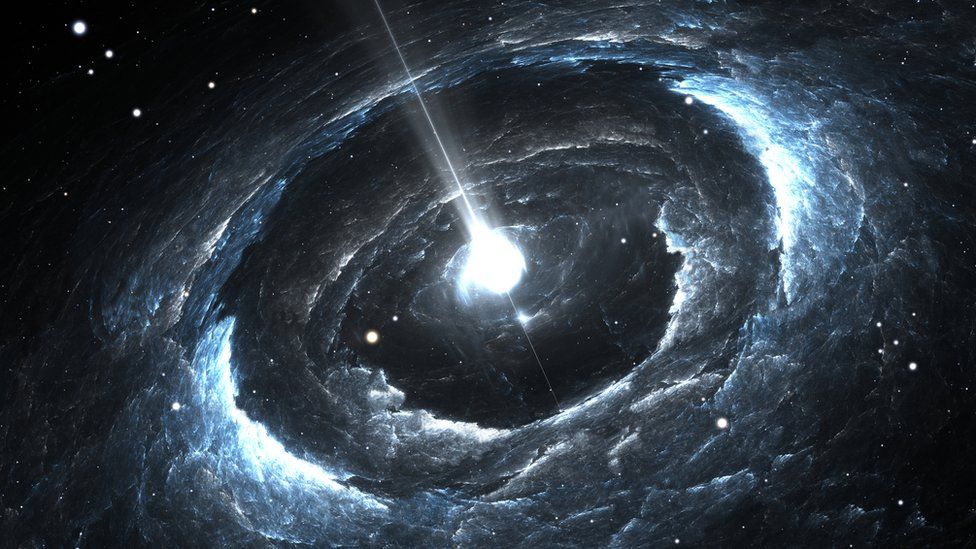Thanks to my kids, I have been following space news and watching space-related videos on YouTube. I decided to compile some mind-blowing facts that I never knew until recently.
The Vastness of Our Universe
The visible side of our universe holds 2 trillion Milky Way-sized galaxies, each containing 400 billion stars. It takes light 100 thousand years to cross a single galaxy. Yet, this is just a glimpse into an infinite cosmos.
Andromeda Galaxy: A Neighbor Light Years Away
The nearest galaxy to us is the Andromeda galaxy, which is visible to the naked eye. It is located 2.5 million light years away from us. Now, as we are talking, let's imagine that the Andromeda galaxy vanishes or explodes into dust. Even then, you wouldn't know it. Only after 2.5 million years will the people living on Earth realize it. All the stars we see from Earth are the light emitted from those stars several million or even thousand years ago.
The Expanding Universe
We all know that the universe is expanding, aligning with the Big Bang theory. In fact, the universe is not just expanding; it is accelerating outward. So, each day, galaxies are moving away from us by several million miles. There may come a point in the distant future when the sky will be entirely dark, making us feel very lonely.
Exoplanets and Extraterrestrial Life
We are aware that there are countless stars out there, and there is a high probability of finding exoplanets with conditions similar to Earth, where life might thrive. However, I doubt if they would possess the same cognitive abilities as us humans, or they might even be super-intelligent. Nevertheless, the probability of finding such a planet, exploring it, and settling there is next to impossible, and with each passing day, that possibility diminishes as they all move farther away.
Space's Bizarre Geometry: Black Holes
There could be a black hole with a circumference of 30 miles, and according to our math, the diameter of such a black hole would be 30/π, approximately 10 miles. But in reality, the diameter could be several million light-years, causing Euclidean geometry principles to fail in space. This is because space is curved and warped.
The Sun's Role in Our Solar System
The sun is 150 million kilometers away from Earth, which is 1 astronomical unit (AU), and it takes 8 minutes for light to reach us. Now, imagine if the sun were to suddenly vanish. We would only know about it after 8 minutes. You might be thinking this is similar to the point I made about Andromeda. The mind-blowing fact is that even though the sun has disappeared, the Earth will continue to revolve for 8 minutes as if the sun is still there. This is because the speed of gravity is the same as that of light, and it will take 8 minutes for us to realize it. After 8 minutes, the Earth will be catapulted outward tangentially into deep, dark space.
Exploring Our Solar System
The only planet in our solar system with the potential for settlement is Mars. Among the rocky planets - Mercury, Venus, Earth, and Mars - the rest are gaseous, and there is no possibility of a landing. Mercury and Venus are extremely hot and can even melt metals. Other possible destinations include the satellites of the gas giants, such as Europa around Jupiter and Titan around Saturn.
Diamond Rain on Uranus and Neptune: It's believed that deep within the atmospheres of Uranus and Neptune, it rains diamonds! The extreme pressure and temperature conditions cause carbon atoms to crystallize into diamond particles
Black Hole Time Dilation: Near a black hole, time is dramatically distorted due to its intense gravitational pull. For someone near a black hole, time could pass much more slowly compared to someone farther away. This phenomenon is known as time dilation.
Dark Matter and Dark Energy: Despite making up most of the universe, dark matter and dark energy are mysterious and still not fully understood. They influence the expansion of the universe but remain invisible to us.
Lunar Recession: The Moon is gradually moving away from the Earth at a rate of about 3 centimeters per year. This phenomenon is known as lunar recession.
Courtesy: BBC, Brian Cox, Binocs Show, Youtube

No comments:
Post a Comment
I welcome brickbats as well..so hit me hard with your comments..